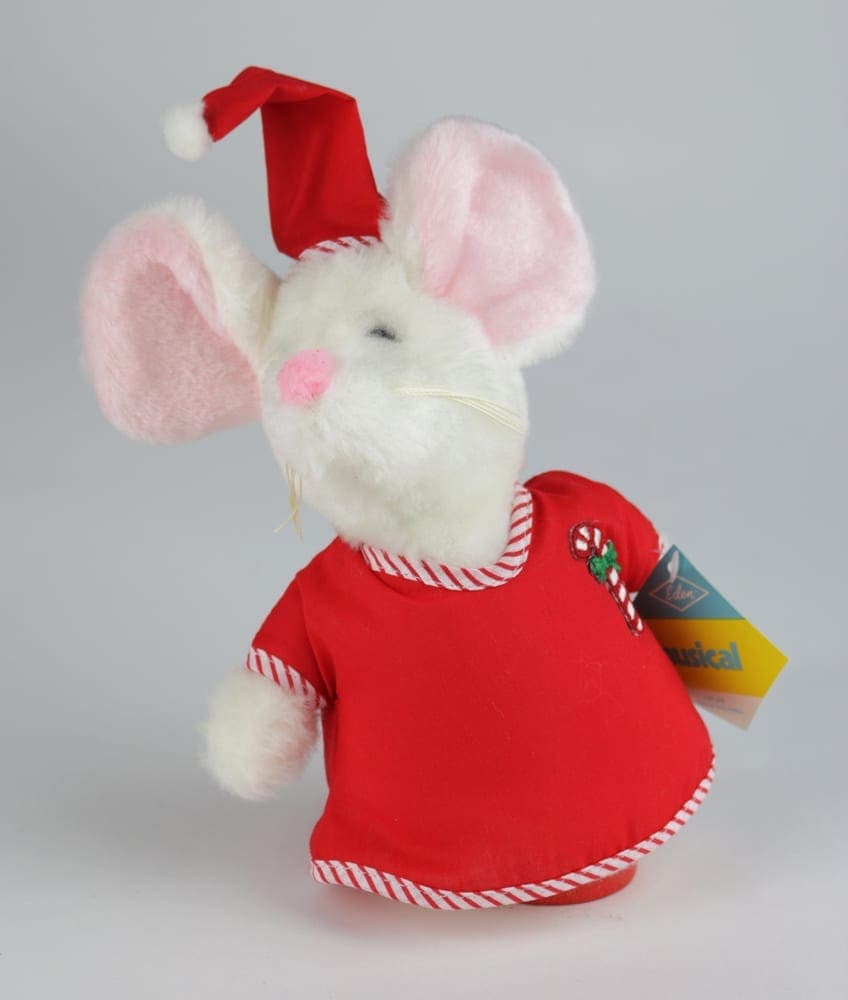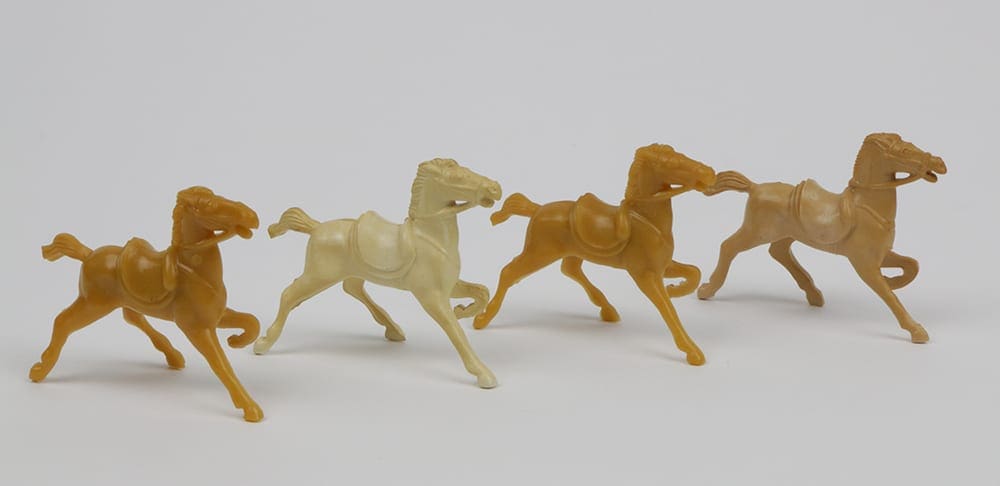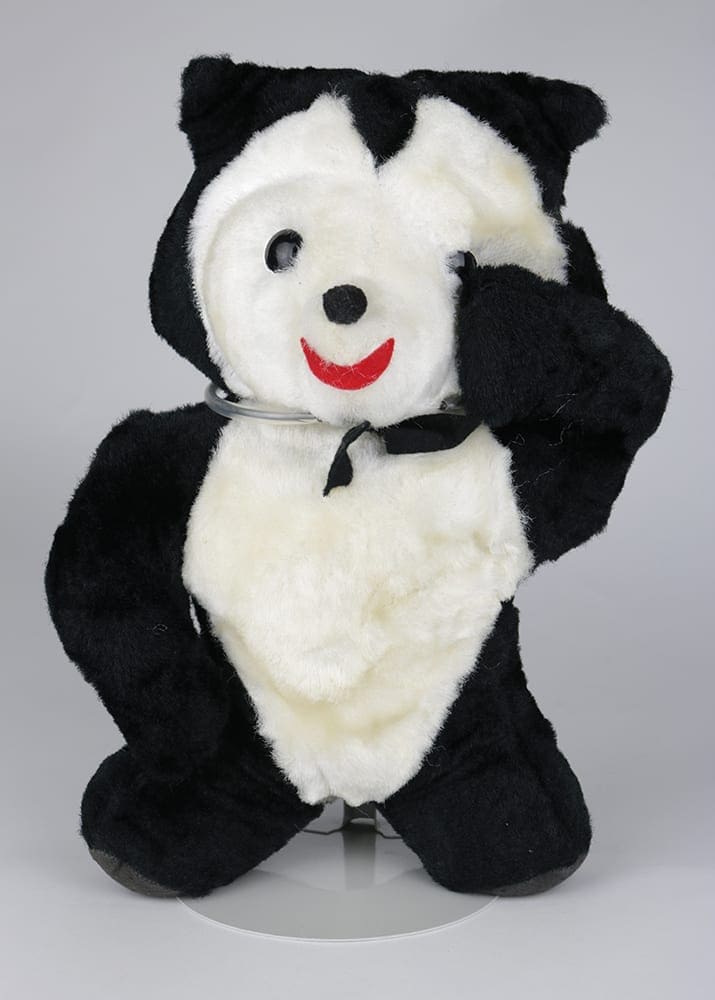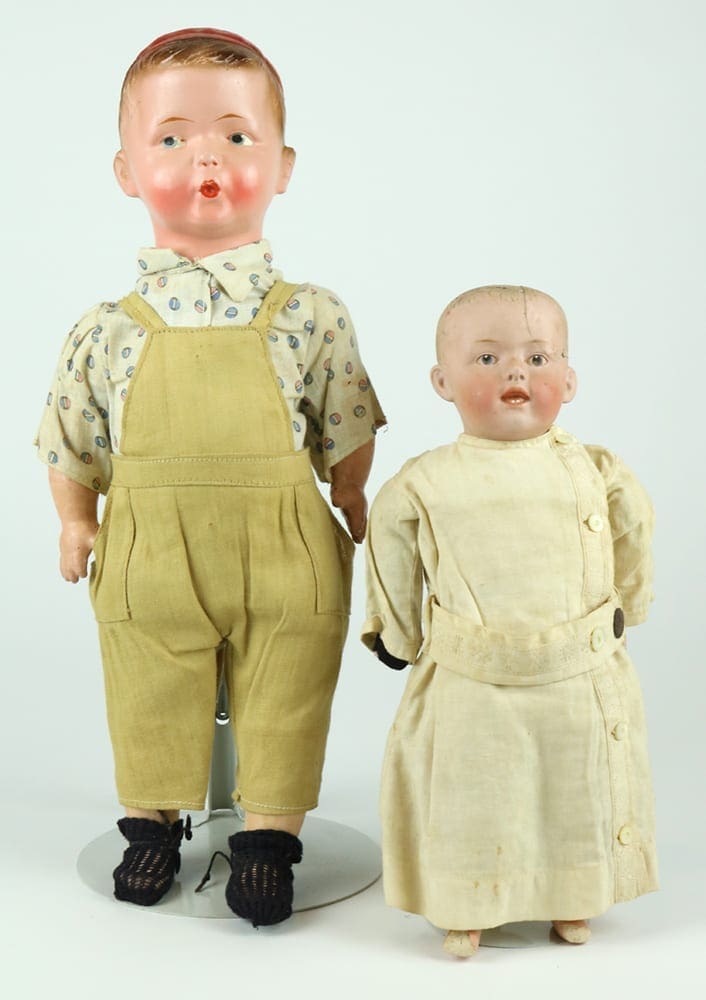Christmas Mouse
Donated by Ada Lee Shook
 Made by the New York-based Eden Toys, Inc., this musical mouse spins in a circle while playing “Deck the Halls.” It has a copyright date of 1982 and was sewn in Haiti. According to a 1981 newspaper article in the Millville (New Jersey) Daily, Eden’s board chairman David Miller explained that “the average stuffed toy takes 60 to 90 days to produce . . . because material must be cut, shipped [from Eden’s New Jersey factory] to South America or Haiti for stitching, and returned to the U.S. for finishing.”
Made by the New York-based Eden Toys, Inc., this musical mouse spins in a circle while playing “Deck the Halls.” It has a copyright date of 1982 and was sewn in Haiti. According to a 1981 newspaper article in the Millville (New Jersey) Daily, Eden’s board chairman David Miller explained that “the average stuffed toy takes 60 to 90 days to produce . . . because material must be cut, shipped [from Eden’s New Jersey factory] to South America or Haiti for stitching, and returned to the U.S. for finishing.”
A similar Eden Toys musical mouse is seen in a Belk’s Department Store ad in the December 21, 1984, Gaffney (South Carolina) Ledger, retailing for $16. The only difference between that mouse and the mouse pictured here is the outfit. The Belk’s mouse is wearing a striped nightshirt and cap.
Perhaps Eden Toys’ best known plush toy was Paddington Bear, the creation of British author Michael Bond. Other popular Eden toy lines included Beatrix Potter’s animal characters and Jean de Brunhoff’s Babar the Elephant animal characters. Eden Toys sold all its toy licenses in the early 2000s.
Ada Lee Smith Shook (1928–2009) was descended from pioneer families in Washington and Benton counties. Born in Fayetteville, she was the only child of William Carl Smith and Frances Slaughter Smith. Ada Lee graduated from Fayetteville High School in 1945, received a degree in mathematics from the University of Arkansas, and taught school for a time. She married William Eugene Shook in 1953. They raised two children. Ada Lee was an avid genealogist and saver of family heirlooms, many of which she donated to the Shiloh Museum.
Donated by Ada Lee Shook
Made by the New York-based plush-toy manufacturer Eden Toys, Inc., this musical mouse spins in a circle while playing “Deck the Halls.” It has a copyright date of 1982 and was sewn in Haiti. According to a 1981 newspaper article in the Millville (New Jersey) Daily, Eden’s board chairman David Miller explained that “the average stuffed toy takes 60 to 90 days to produce . . . because material must be cut, shipped [from Eden’s New Jersey factory] to South America or Haiti for stitching, and returned to the U.S. for finishing.”
A similar Eden Toys musical mouse is seen in a Belk’s Department Store ad in the December 21, 1984, Gaffney (South Carolina) Ledger, retailing for $16. The only difference between that mouse and the mouse pictured here is the outfit. The Belk’s mouse is wearing a striped nightshirt and cap.
Perhaps Eden Toys’ best known plush toy was Paddington Bear, the creation of British author Michael Bond. Other popular Eden toy lines included Beatrix Potter’s animal characters and Jean de Brunhoff’s Babar the Elephant animal characters. Eden Toys sold all its toy licenses in the early 2000s.
Ada Lee Smith Shook (1928–2009) was descended from pioneer families in Washington and Benton counties. Born in Fayetteville, she was the only child of William Carl Smith and Frances Slaughter Smith. Ada Lee graduated from Fayetteville High School in 1945, received a degree in mathematics from the University of Arkansas, and taught school for a time. She married William Eugene Shook in 1953. They raised two children. Ada Lee was an avid genealogist and saver of family heirlooms, many of which she donated to the Shiloh Museum.



